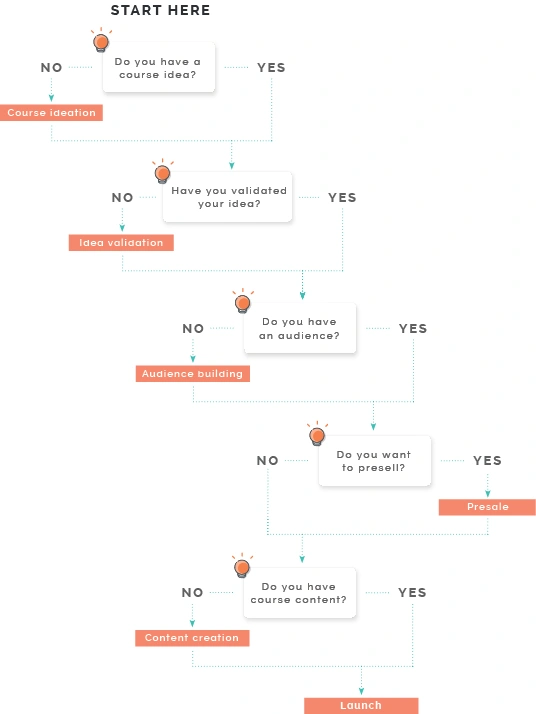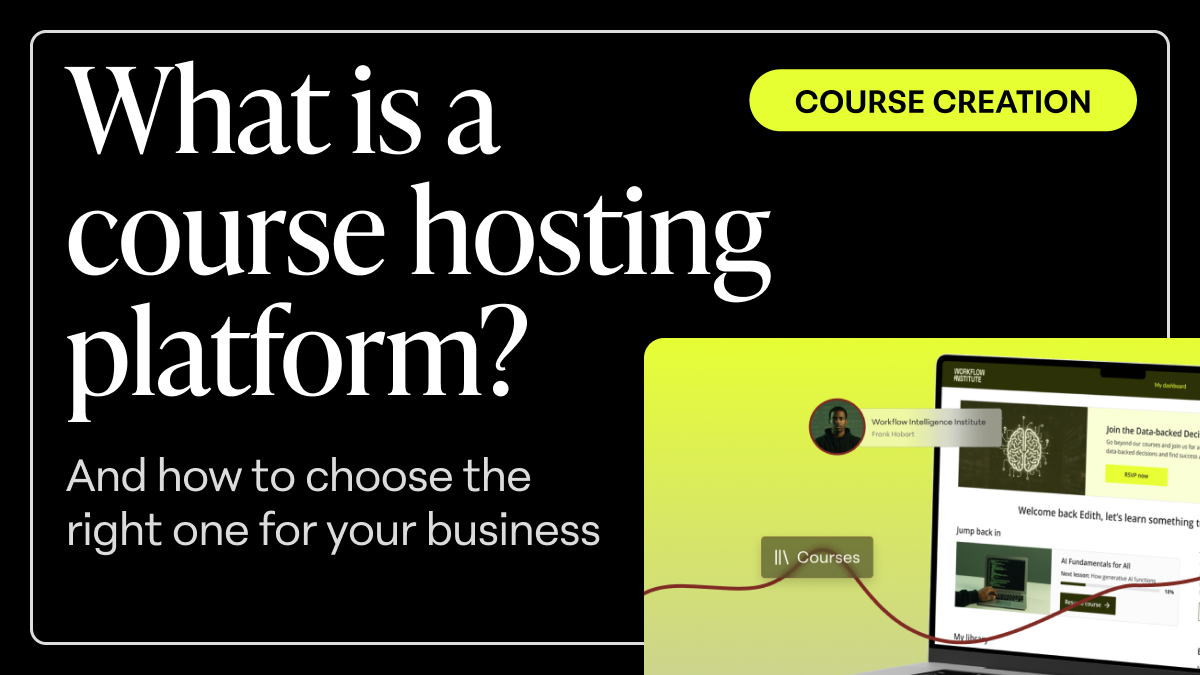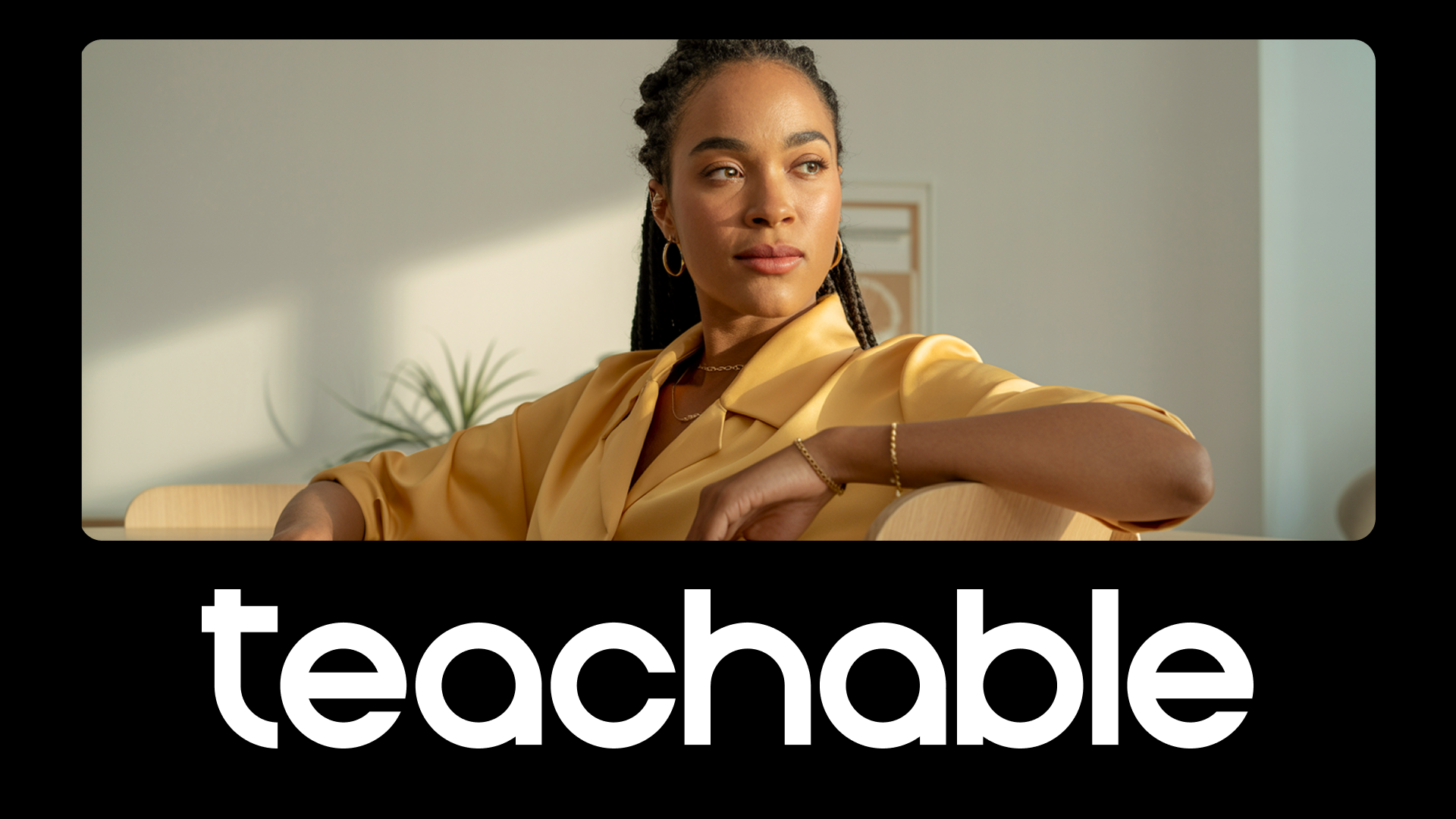Not everyone has the same needs when they are just getting started. This online course creators to-do list is designed to help you find out where you’re starting, so you’ll know what to do next. Some new course creators have been teaching or coaching for years and already know the exact topic of their course, others don’t have a topic yet but have been able to build an audience and would like to monetize it.
A simple to-do list could work for some people and not for others. That’s why the steps in our to-do list are not perfectly sequential or mandatory for everyone. Your path will depend on your current situation. You will need to answer some simple questions that will help you determine what you need to do and when.
{{todolist-component="/blog-shortcodes/blog-popup"}}

Once you know which steps you should be focusing on, scroll down to the specific section in this post that will explain your objective and link you to the resources you’ll need to get complete the step.
Pro tip: Try to avoid getting ahead of yourself. For example, if you have not validated your idea, there is no point in worrying about your course launch yet.
1. Course ideation
Do you want to start your own online course business but don’t know exactly what to teach? Do you have a million ideas but can’t figure out which one to pursue? Then ideation should be the first thing you do.
Coming up the right course idea is about finding the intersection of:
- Your knowledge
- Your passions
- A profitable niche
The first two point are somewhat intuitive: you need to have expertise to share and be able to enjoy sharing that knowledge (after all, you’ll spend years doing it after you’re successful.)
The third point is one that surprises some new course creators. When it comes to online courses, teaching a niche topic will give you an edge in the market and help you generate more revenue than if you pursued a very broad topic.
What you’ll have after completing the course ideation step
After you complete this step, you should have a few solid online course ideas (no more than three).
How to come up with a course idea
- Follow the steps described in this post: How to find a unique niche for your online business
2. Idea validation
The biggest fear of any course creator is to work days, weeks, or months on an online course, only to find out that no one wants to buy it. Once you have an idea for your online course, it’s important for you assess market demand for your course before you invest any time or money to create it.
The good news is that the internet has made it extremely easy (and cheap) to validate your business idea, so you can create your course without worrying if anyone will buy it.
What you’ll have after completing the idea validation step
After you’re done with idea validation, you’ll know whether you should pursue your course idea or go back to the previous step and come up with a new one. If you validate demand for your course, you’ll also name and outline your course in this step.
How to validate your course idea
- Read this blog post with 15 ways to validate your online course idea and try at least 3 of the methods described.
After that is done, read and follow the processes described in these posts:
3. Audience building
A common mistake among new course creators is that they don’t start building an audience early enough. Once you have a validated course idea, you should immediately start building your audience—even before you even start working on your course content.
Think of this as interest. When you start building your audience early, those efforts will compound until the moment when you launch your course: when the time comes, you will already have a group of people who know you and are interested in what you have to offer.
What you’ll have after completing the audience building step
A sizable audience of people interested in your niche topic that you can later tap into for your launch.
How to build your audience
Our recommended method for growing your audience is through building your email list.
Our list-building 101 guide will give you several tactics to get email subscribers including mini courses, lead magnets, giveaway, and webinars. What’s important here is that you pick one tactic and implement it. If you don’t know which to pick, here are our favorites (in descending order):
- Mini courses
- Lead magnets
- Webinars
- Giveaways
Of course, list building is not the only way to grow your audience—you can try other methods as well (but remember to only focus on one of them at a time and avoid trying to do too much).
4. Pre-sale
Some people find pre-sales counter-intuitive. After all, you’re asking people to pay you for a product that doesn’t exist yet. Truth is that pre-selling is not for every market, especially those topics that are seasonal or time-sensitive (courses for pregnant mothers come to mind) will not be good fits for this method for obvious reasons.
However, if your course doesn’t address a temporary need, you’ll find that pre-selling comes with plenty of benefits:
- Get paid to create your course
- The opportunity to gather feedback about early versions of your course before your release it to the public
- Get a sense of what people want and how much they are willing to pay for it
- More motivated to follow through and launch your course
If you have built mutual trust with your audience, you should definitely consider pre-selling your course.
What you’ll have after completing the pre-sale step
Revenue and extra motivation to create your course.
How to pre-sell your course
The pre-sale process is similar to launching your course, with just a few tweaks. We recommend that you check out Teachable’s 6 steps to a successful presale. And, if you have time, also read this great case study.
5. Content creation
You can create a world-class online course with tools you already have and resources that are available for free. Or you can even choose to spend just a few dollars and upgrade your production quality even more. The best part? You can do it all yourself.
What you’ll have after completing the content creation step
A beautiful and professional online course that’s ready to be launched!
How to create your course content
If you haven’t done it already, you should start by outlining your course content to get a complete curriculum for your course, organized into sections and lessons (if you already did this during the idea validation step, now is a good opportunity to review your work!) Read this post on how to plan your course content.
Our most successful online courses are video courses. You can learn how to easily and affordably record and edit your video content. Check out our DIY video guide for more.
Finally, adding worksheets is a great way to increase student engagement and elevate the value of your course.
6. Launch
Launching is probably the most exciting and nerve-wracking moment for new course creators. After you launch your course, you will be officially open for business. A good launch can be the first step towards starting to earn side income. A great launch can help you make the decision of going full-time into working on your own online business.
While it’s true that there are endless ways to launch an online course, after thousands of launches by Teachable instructors, we’ve seen what works and what doesn’t and came up with a simple framework you can use to run your own successful course launch.
What you’ll have after completing the launch step
Your own online course business
How to launch your course
Before you launch your course, you should determine the price of your course. We recommend that you use premium pricing to sell your course. Check out our simple pricing guide.
Next, you should create an optimal path to purchase. This includes your sales, checkout, and thank-you pages.
- Learn how to write sales page copy that converts.
- Customize your checkout page to increase conversion rate at the moment of purchase.
- Add an upsell to increase the average purchase value.
And this is only the beginning. Don’t forget to download the to-do list above to make sure you stay on track.
Join more than 150,000 creators who use Teachable to make a real impact and earn a real income.




.png)


